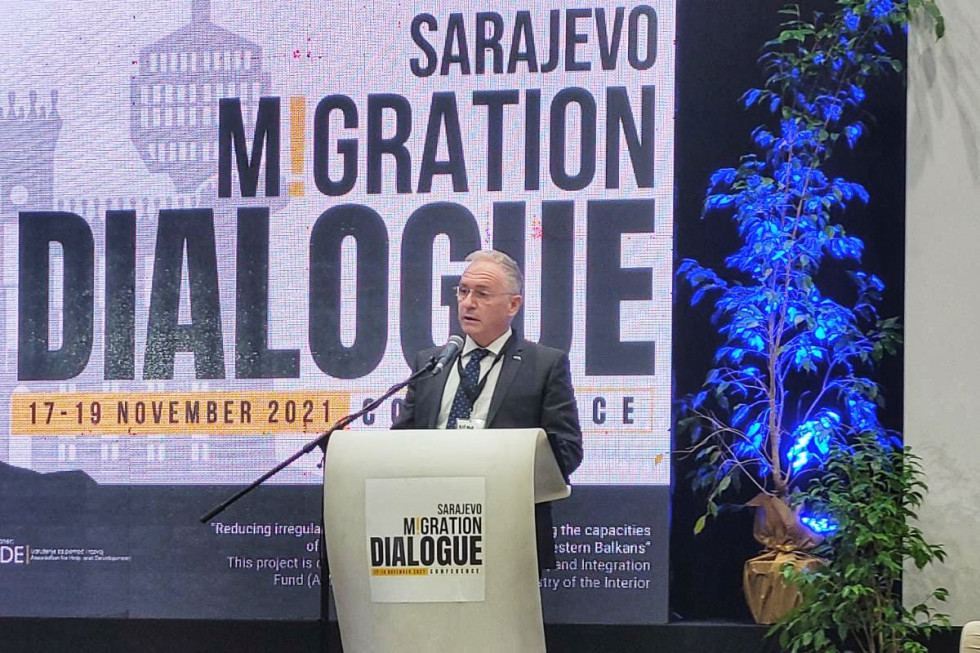By: UKOM
The Minister of the Interior Aleš Hojs today attended a regional ministerial conference entitled “Sarajevo Migration Dialogue” in Sarajevo. The Minister focused on strengthening cooperation and partnership in the region in managing migration and maintaining security.
As Minister Hojs said in his opening remarks, “Geographically, the Western Balkans are an integral part of our continent. Although this region is not yet part of our political and economic union, there are some areas, such as security and migration, where it should already be considered as part of our shared governance”. The Minister then turned his attention to the issue of migration. “Given that migration is a global phenomenon that goes far beyond individual countries, migration management must be seen as a collective responsibility. Our cooperation must be based on mutual trust.”
Progress towards a comprehensive EU migration management system and cooperation with partner countries are therefore at the heart of the Slovenian Presidency of the Council of the EU. This year marks the 20th anniversary of the first meeting of the Brdo Process, a platform that offers an opportunity for political commitments to strengthen cooperation in the area of migration and internal security. At the June meeting, ministers expressed their desire for targeted support and highlighted specific needs to ensure more effective migration management in the region. This includes capacity building, joint activities to prevent abuse of the asylum system and the fight against migrant smuggling. “In particular, we examined the possibility of establishing a common system to identify irregular migrants, which is essential to prevent potential threats and maintain a high level of security. It is crucial that persons who do not qualify for international protection are returned to their country of origin without delay.” The Minister recalled that ministers had also indicated their willingness to establish a comprehensive return system in the region.
“The Slovenian Presidency would encourage the Western Balkan partners to adopt the concept of integrated border management,” which, according to Hojs, would be important not only in terms of approximation to EU standards, but also for improving border protection and migration management before accession to the EU. “We also see room for improvement in reception conditions and asylum systems in the region. Supporting our partners in capacity building remains one of our priorities, not only in terms of financial and operational assistance, but also through the exchange of information and best practices – all with a view to managing mixed migration flows more effectively,” stressed the Minister.
In this context, the Slovenian Presidency will host the EU-Western Balkans Ministerial Conference on Justice and Home Affairs between 1 and 3 December, which will provide an opportunity for a political debate on how to strengthen our cooperation. Migration issues will be an important part of the discussions.
On the margins of the conference, Minister Hojs also held a bilateral meeting with the Minister of Security of Bosnia and Herzegovina, Selmo Cikotić. They reaffirmed the good cooperation between the two countries and Slovenia’s sincere support for Bosnia and Herzegovina in the process of EU accession. According to Minister Hojs, it is unacceptable to have a grey area within Europe, i.e. the region of the Western Balkans, that is not part of European integration. The ministers agreed that the protocol on cooperation between the ministries in the fight against trafficking in human beings and child sexual abuse would contribute to enhancing good cooperation. Minister Cikotić said that Bosnia and Herzegovina captured the biometric data of migrants. In this context, the ministers also stressed the importance of data exchange.
Source: gov.si
